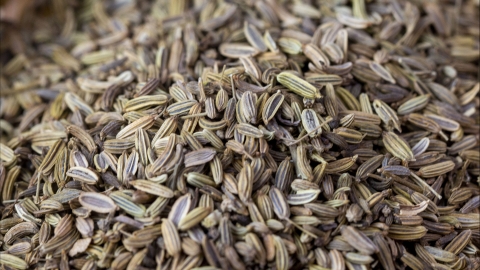What are the nutritional values of fennel?
Fennel generally contains nutrients such as vitamins, minerals, dietary fiber, volatile oils, and amino acids. A detailed analysis is as follows:

1. Vitamins: Fennel contains various vitamins, such as vitamin C and B-complex vitamins. Vitamin C has antioxidant properties, enhances immune function, and promotes collagen synthesis. B-complex vitamins participate in metabolic processes, helping maintain the health of the nervous and digestive systems.
2. Minerals: Fennel contains minerals such as calcium, iron, and potassium. Calcium plays an important role in the development and maintenance of bones and teeth. Iron is involved in hemoglobin synthesis and helps prevent iron-deficiency anemia. Potassium helps maintain electrolyte balance and regulates heart function.
3. Dietary Fiber: Fennel is a good source of dietary fiber. Fiber promotes intestinal motility, increases stool bulk, helps relieve constipation, and delays the absorption of sugar and fat from food, thus supporting intestinal health and weight management.
4. Volatile Oils: Fennel contains unique volatile oils, primarily composed of compounds such as anethole and fenchone. These oils give fennel its distinctive aroma, stimulate gastrointestinal nerves and blood vessels, promote secretion of digestive juices, enhance appetite, and help relieve gastrointestinal spasms and abdominal discomfort.
5. Amino Acids: Fennel contains various essential amino acids required by the human body. Amino acids are the basic building blocks of proteins and are involved in important physiological processes such as growth, development, and tissue repair. They provide essential nutritional support and help maintain normal bodily functions.
Fennel can be consumed in moderation as part of daily meals to supplement its rich nutrient content. It can be prepared by stir-frying, served cold, or used as a filling, according to personal preference. However, it should be consumed in moderation to avoid excessive intake that may cause discomfort.








